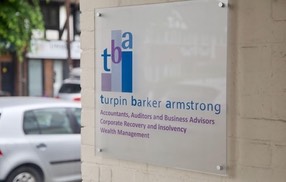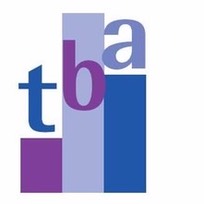Chartered Financial Planner Martin Card, from family-run local financial advisors Turpin Barker Armstrong, is blogging for us about all things finance-related for families

Women have to work till their 80s to get the same pension as men

Women live on average longer than men by approximately four years states Now Pensions, this ultimately means they would need to save more during their lifetime or work until the age of 83 in order to accommodate a longer time in retirement and have the same pension funds available as the average man.
According to calculations from Now Pensions women at the age of 65 will have a £69,000 pension pot compared to a men’s pension savings of £205,800.
Now Pensions also stated that even though women’s employment is currently at its highest rates, sitting at 72.7%, unfortunately 1 in 6 women are still currently ineligible for automatic enrolment into a workplace pension. This means many women will be missing out on vital pension savings which could potentially cause financial difficulties later in life.
Many women work part time (38%) due to either childcare or personal circumstances which means a smaller pay packet at the end of the month, this makes it harder to accumulate additional savings as well as potentially not meeting the £10,000 eligibility criteria to be automatically enrolled into a workplace pension which in turn gains tax relief from employer contributions.
Research has found that women on average take 10 years out of working to start a family and or care for family and relatives which contributes to the gender pay and pensions gap. Therefore, women are often not in line for promotions, career progressions and or the higher salary brackets a person who has not had a gap in their working life may be entitled to.
For many women it doesn’t make financial sense to go back to work full time or even at all after having a child due to the costs of childcare being equal too or in some cases more than their monthly salary. Sadly, this is creating the bigger gender pay and pensions gap. The average UK pension pot has done well and doubled to £111,600 but for women this is not the case with many actually now worse off than before.
If you are concerned about your pensions give us a call to see how we could help secure your future please give us a call on 020 8661 7878.
Martin Card FPFS, Certs CII (MP & ER)
Partner
Chartered Financial Planner
Turpin Barker Armstrong
Tel: 020 8661 7878
Email: finance@turpinba.co.uk
www.turninba.co.uk
Is your business your retirement plan?
All too often, when we speak with clients, we find that they are relying on the value of their business providing for them in retirement too. However, more often than not the value of a business is directly linked to the owner’s perception of value rather than an open market value and here is the problem.
Many clients build up cash reserves as they feel this will make their business attractive, but they do not appreciate that cash is cash and the value of that element of your business is calculated either on a pound for pound basis or in some cases discounted as the purchaser does not want the cash in the business.
Holding too much cash can prove problematic for inheritance tax purposes as it can affect the trading status of your business by unintentionally making your company an investment business.
So how can you avoid the shock of your business suddenly becoming less of a retirement plan than you thought?
Making pension contributions from your business and on your behalf can be a tax efficient way of extracting money from your business that will provide you with a retirement fund that is inheritance tax friendly and grows free of taxation.
There are many reasons to consider making pension contributions including:
• Pension contributions made on your behalf can help reduce corporation tax.
• That pension fund can currently provide you with a tax-free lump sum of 25% of its value.
• The income from the fund can be taken in a manner that is suitable for you, from age 55,
without the need to actually retire.
• Your pension fund could be used to purchase a commercial property from which you trade
thus saving tax on rental income and building your pension fund from the rent that you would have paid anyway.
If you would like to have a conversation about using your business for retirement planning. Please get in touch.
Martin Card FPFS, Certs CII (MP & ER)
Partner
Chartered Financial Planner
Turpin Barker Armstrong
Tel: 020 8661 7878
Email: finance@turpinba.co.uk
www.turninba.co.uk
Are you covered by your company?
The COVID 19 pandemic has certainly focused our minds on how we will and can cope when business has been turned upside down; income is affected but there is a real threat to our health.
Going forward, as we start to cautiously exit from the fog of the lockdown, it is clear that making sure that our families are protected and that we are being as efficient as possible with our expenditure are key considerations.
Those that conducted their business through a limited company have been able to furlough themselves to help with cashflow and this perhaps illustrates one aspect of having your own limited company that can prove beneficial.
Another aspect is the ability to use your limited company to pay for your life assurance and income protection cover.
You will be aware of life assurance but perhaps not so aware of income protection. Income protection provides you with a regular income if you are unable to work due to sickness or accident for an extended period of time. For some, this could be the difference between having a roof over your head or not during this crisis.
Having your business pay for life assurance and income protection can mean a saving on income and corporation tax and a saving of employer’s national insurance. In some cases the cost of cover is up to 40% cheaper than paying the premiums yourself.
So why not get in touch to see if you could make a saving? Even those who already have cover could benefit from a review to see if that cover can be replaced through business assurance.
Martin Card FPFS, Certs CII (MP & ER)
Partner
Chartered Financial Planner
Turpin Barker Armstrong
Tel: 020 8661 7878
Email: finance@turpinba.co.uk
www.turninba.co.uk
I appreciate that these times can, of course, be worrying and stressful but I thought I would write the following checklist of things you might want to consider doing while at home if you have some spare time to address some important financial matters.
1. Write a Will
Recent research by The Royal London Mutual Insurance Society indicates 54% of adults in the UK do not have a Will and six out of ten parents do not have one, nor do they have guardians in place who would look after their children.
For those who already have a Will, this might also be a good time to review and determine if it needs to be updated in the form of a new Will to reflect changes in circumstances or, via a codicil.
It is also worth noting that marriage revokes an existing Will unless the Will was written in full anticipation of the marriage. Whereas a divorce doesn't revoke an existing Will. As a result, life events can often necessitate the need to review an existing Will to ensure it continues to remain up to date and reflect your wishes.
Should you need to be referred to a Will writer we would be happy to provide contact details.
2. Establish a Power of Attorney
A Power of Attorney is a legal document that allows someone to make decisions for you, or act on your behalf should you no longer be able to, or if you no longer want to. This could be in the short term, for example as a result of spending a period of time in hospital or long term, due to mental incapacity.
These decisions can relate to your general welfare, including decisions made on your daily routine, any medical care, or in choosing a care home – this is known as a Health & Welfare Lasting Power of Attorney.
Alternatively, you may require assistance on making decisions, should you be physically or mentally incapacitated, regarding your finances. This includes managing your savings and investments, structuring your income requirements, paying your bills or selling your property(s) – this is known as a Property & Financial Affairs Lasting Power of Attorney (LPA).
You are able to appoint one or more attorneys to help you make the decisions on the above. An attorney must be over 18 and have the mental capacity to make their own decisions. Where the expectation is that the attorney could only be required for a short period of time then a simpler ordinary power of attorney could be considered rather than an LPA.
Again our will writer can help you with this and we would be happy to provide contact details.
3. Collate lost pensions arrangements
Are you aware of all of your existing pension arrangements? Even from that short-term employment you took up 10 years ago? Any pension funds which you have accumulated in your working life could make a real difference to your overall pension savings when you reach retirement.
Research carried out by The Association of British Insurers in October 2018 estimates that there is nearly £20 billion held within 1.6 million pension pots with an average size of £13,000 which have been forgotten.
If you suspect that you have an old pension pot from a previous job, you are now able to track down the pension scheme's contact details by using the 'Pension Tracing Service' which is a free government service on the following address:
https://www.gov.uk/find-pension-contact-details
We can advise on whether new found pensions meet your current and future needs.
4. Update pension beneficiary form (expression of wishes)
You have reviewed your Will; now do you know who will inherit your pension benefits? Pensions normally do not form part of your estate for inheritance tax purposes and are therefore not covered by your Will. In order to specify who you want to inherit your pension after your death you need to have an Expression of Wish in place, and if any of your pensions pre-date your current relationship then you may want to review this to ensure they are up to date.
The best chance of ensuring your beneficiaries are able to retain the tax advantageous pension wrapper in the form of a beneficiaries' pension, is to list them specifically on your Expression of Wish form and check the death benefit options of your existing arrangement.
You should contact your pension providers to find out your current nomination and to obtain the relevant forms as soon as possible.
We feel that this is a very important task as out of date or incorrectly completed expressions of wishes can be ineffective especially when taking into consider the 2015 changes to pension legislation. Feel free to get in touch for help.
5. State Pension
In 2016 the UK Government introduced the new single-tier State Pension. Under the previous system it was difficult to understand exactly what you may have been entitled to until you reached your state retirement age, however the new system is designed to make this far simpler.
The new State Pension is based on your National Insurance record, requiring an individual to have 35 qualifying years to be eligible to receive the full amount. A qualifying year can include years where you have been in full time employment, or where an individual has received National Insurance credits given to those who have caring responsibilities (i.e. those receiving Child Benefit).
The majority of individuals are unaware of how much they may be eligible to receive as their State Pension, or at what age they will qualify for it. The link below provides further information on how much you could stand to receive and at what date it could become payable. The State Pension could form a valuable part of your retirement income, so understanding your entitlement is essential.
https://www.gov.uk/check-state-pension
Perhaps you have decided to defer your state pension? Is this still the right thing to do? We are here to help if you need us.
6. Review old insurance policies
Every month, do you see that direct debit leave your bank account and go off to an insurance provider for that protection policy you took out many years ago? Or do you have that prehistoric mortgage endowment policy which you keep receiving annual statements for? Do you know what you are actually covered for and whether this is sufficient for your needs?
Insurance may also need updating following changes in your personal and financial situation and/or following certain life events, including:
- A new job or changing to self-employment.
- You may have sold your business and be considering retirement.
- Marriage or divorce.
- Children or grandchildren.
- A change in either yours or your partner’s health.
- Paying off a debt or other liability.
- Moving house or buying/selling property.
- Making financial gifts from your estate.
Right now might be the time to review your protection policies to ensure you are adequately covered in the event that you may have a need to make a claim on your insurance policies. If you cannot locate your original policy documents, you should contact your insurance provider to find out what exactly you are covered for.
As you review these policies, you should also check if your life assurance policies are held in trust. Ensuring these policies are written under trust will mean that when the funds are paid out they do not automatically form part of your estate or your beneficiary's estate on your death.
The cost of insurance has decreased in recent years and should be reviewed on a regular basis. Also, for those who own their own limited company, life assurance can be placed through the business thus saving you on tax and national insurance. Please contact us for information.
7. Consider new insurance policies
If you do not have any insurance currently in place, then this is something that you may wish to consider. Putting in place a basic level of protection is probably more affordable than you think and you could buy certain life insurance for just a few pounds a month.
There is currently (and what is referred to in the industry as) a ‘protection gap’ in the UK. This means that a large proportion of the UK would be left financially vulnerable should they, or their spouse, pass away prematurely or suffer an illness or injury that would affect their ability to earn. Despite this apparent financial vulnerability and need for a safety net, a research study by the Financial Conduct Authority (FCA) highlighted that 65% of the UK adult population has no form of insurance. Among the 35% who do have some form of insurance more of them have critical illness insurance (10%) than income protection (4%) and it is estimated that from c 26.7 million households in the UK, just 300,000 have an income protection policy in place.
Given the recent COVID-19 pandemic and the increasing levels of staff being furloughed, or made redundant now could be the time to consider your ongoing protection needs for you and your family.
8. Consider making gifts
Right now might be a time that someone close to you needs some financial support more than ever and you may want to help. Making an outright gift from capital is usually classed as a Potentially Exempt Transfer for Inheritance Tax (IHT) purposes. This means that if you were to pass away within seven years of making the gift, it would form part of your estate for IHT purposes unless the gift qualifies for an exemption.
One such exemption is the IHT exempt annual allowance of £3,000 per tax year. Each individual is able to make an outright gift of £3,000 per annum which is immediately exempt from their estate for IHT purposes. In addition, once the current year's allowance has been maximised, you are able to utilise the previous year's unused allowance meaning the first gift could amount to £6,000, which is immediately exempt from IHT.
Each tax year you can also give away up to £1,000 per person in consideration of marriage or civil partnership (or up to £2,500 for a grandchild and up to £5,000 for your son or daughter).
Finally, where you have the disposable income to do so, gifts out of income could also be immediately exempt from IHT provided the gifts are from disposable income, the intention is to establish a regular pattern of gifting and, they do not adversely impact on your standard of living.
Concerns have been raised about the potential longevity of these valuable reliefs with several influential reviews calling for wholesale change to the IHT regime. With asset valuations potentially lower, if you feel that you are in a position to do so, now may be an opportune time to make those gifts.
Redirecting your annual exemptions into a whole of life assurance policy can provide your loved ones with a significantly larger amount of money on your death than perhaps the combined effect of gifts alone. Get in contact if you would like to discuss this.
9. Charitable donations
You only have to hear the story of Captain Tom Moore, a 100-year-old war veteran who has raised an enormous amount for NHS Charities Together by setting out to walk 100 lengths of his garden before he reaches 100, to realise how many people are making charitable donations during the lockdown. You may be making donations to a charity close to your heart at this time too.
If you are a UK tax payer, when you make these donations, you are usually able to elect to apply Gift Aid to these contributions meaning the charity you are donating to receives an extra 25%, at no cost to you.
In addition, if you pay tax above the basic rate, you can claim the difference between the rate you pay and basic rate on your gross donation (i.e. the donation amount after gift aid is applied). You should therefore remember to make a note of the donations you make so that you can apply for the additional relief on completion of your self-assessment tax return.
10. Budgeting
With all this extra time on our hands, now could be a good time to go through the rather boring (and sometimes frightening) exercise of seeing what you normally spend. This may be especially important if you are currently facing a cut in pay or income as a result of the pandemic. While in lockdown you are likely to save costs on some expenses, such as parking, petrol, train fare, coffees, eating out and entertainment.
You may also have been able to put certain monthly subscriptions on hold such as gym memberships. As such, a good start point would be to review your expenditure prior to lockdown to determine how much is available in disposable income to start a new savings arrangement, make gifts out of income to a loved one or, to your chosen charity.
If you do put together an expenditure sheet, or indeed need a blank canvass to work with, let us know and we can help.
11. In Case of Emergency (ICE) document
Do your family members know where all your important documents are held, who your financial adviser, investment manager, accountant or solicitor is, and do they have their contact details? Has one member of the family historically controlled all the family finances? Now would be a good time to put all the important information into one document, including the location of your will, and anything else you think would be relevant if something were to happen to you.
We have found getting children involved in your financial planning as early as you are comfortable with ensures they know where they can come if they need trusted advice when you are no longer around.
12. Government Schemes to deal with impact of COVID-19
Last but certainly not least, the UK Government has announced a raft of measures over the last few weeks to ease the financial pain and uncertainty that the current crisis, and subsequent lockdown, is causing to the majority of the population. For more information, please speak to your relationship manager about the LGT Vestra COVID-19 update for employers and employees issued in March.
Some of the measures are outlined below:
• Coronavirus job retention scheme – which will reimburse an employer up to 80% of a furloughed employee's salary capped at £2,500 per month.
• Self-employed Income Support Scheme – the Government has also introduced a scheme for the self-employed with trading profits of £50,000 or less. Taxable grants worth 80% of average monthly profits, up to a maximum of £2,500 a month is available.
• £10,000 grant for small businesses that qualify for small business rates relief or rural rates relief. £25,000 grant for businesses in the hospitality sector with rateable value between £15,000 and £51,000.
• Business interruption loans of up to £5 million available to small and medium businesses from 23 March 2020 for up to £5 million interest free for 12 months.
• Business Rates – holiday payment for businesses in hospitality, leisure and retail and estate agencies.
• Payment on account – self assessment payment due on 31 July 2020 now deferred until 31 January 2021 free of interest or late payment penalties.
• For those in difficulty due to the impact of the pandemic, mortgage lenders will offer a three-month mortgage holiday.
• Also, renters have received some help with emergency legislation suspending new evictions from social and private rented accommodation during the period of national emergency. Mortgage holidays are also available for private landlords.
• Businesses will not be liable to VAT payments during the period 30 March and 30 June 2020. VAT refunds and reclaims will be paid by the Government as normal.
• Time to pay scheme – provides the ability to agree payment of tax in instalments, free of interest.
Our Business Services Group are available for conversations if you need any advice for your business. If unfortunately your business is struggling you can always speak to our Insolvency department and get advice on business recovery and administration.
13. Staying safe
We like to feel that we take into consideration our clients personal circumstances both in terms of their financial planning needs and their personal well being too. We hope to ensure that you are staying safe at home and not being taken advantage of. The Coronavirus has made us all a little bit more vulnerable affecting physical and mental health and there will be, unfortunately, people who wish to take advantage of this. Below is a link to our regulator’s website and in particular a section to protect yourself against scams. These can be in the form of telephone calls, mailshots, misleading posts on the internet and some less scrupulous financial advisors. Please take some time to have a look:
https://www.fca.org.uk/consumers/protect-yourself-scams
14. Your investments
We receive regular commentary from our investment partners some of which is appropriate to pass on and we will aim to do so as and when we can. Do please keep in contact with us if you need to discuss how your plans are progressing or if there has been any change in your circumstances. As things currently stand, unless your plans have changed to mean you will need to access your investments in the short term, our advice remains to stay as you are and not take any unforced action.
It is important to state that everybody’s circumstances are different and so we would encourage you to get in contact with us if you need any help or have any questions at all.
Martin Card FPFS, Certs CII (MP & ER)
Partner
Chartered Financial Planner
Turpin Barker Armstrong
Tel: 020 8661 7878
Email: finance@turpinba.co.uk
www.turninba.co.uk
Basic Financial Planning for the Self-Employed
Sadly, it sometimes takes unfortunate events to make us realise that planning for the worst-case scenario was the best thing to do and the current pandemic is, in hindsight, an example of that.
I often tell clients that if I were treating them as a case study, using my old examination answer technique of using the acronym P.E.P.S.I, I would concentrate, initially on the foundation of financial planning and that is Protection.
It is key to ensure that you make sure that if the unexpected happens, you have a plan. In normal circumstances this advice applies to the employed as much as the self-employed. However, we have seen in the space of just a few short weeks, it seems that the self-employed may have been most affected.
So, what should you do?
1. You MUST have an emergency fund.
Now this might seem that I am using the current situation as a means to justify an end, but this is basic and sound financial planning. You should consider saving on a regular basis until such time as you have somewhere between three and six months’ worth of expenditure. This will ensure that your mortgage can continue to be paid, your necessary bills can be paid, and food can be put on the table.
I appreciate that saving this sum of money can be hard, but it might be that priorities need to change, and those non-essential monthly outgoings are reduced slightly. Just for a while.
Three to six months, that’s convenient! It seems that way doesn’t it, but it has been shown that typically this is the period it takes to turn things around or come up with a new game plan. However, as we have seen recently as a result of the pandemic, it also seems to tie in nicely with the Government’s way of thinking too.
2. Protection
This means life assurance, critical illness cover, Income protection, private medical insurance or perhaps Accident Sickness or Unemployment cover.
Life assurance is the foundation of your financial planning. You should ensure that your debts such as mortgage debt or credit card debt can be repaid if you were to die. Debt does not disappear when you die, someone has to pay it. Would you want that you be your children or partner?
Typically, you should at least provide for your debt to be repaid but also, perhaps, a little extra for your children to be provided for or even to pay for a funeral. Morbid I know but factual I am afraid.
Income protection for the self-employed is also exceptionally important because how are you going to meet those bills each month if you cannot work for an extended period of time due to sickness or accident? Income protection pays an income to you if you are deemed to be unable to work and it will pay that income for either a fixed period of time, say, 12 months or 24 months or, on most policies, until you retire.
As you can see the two key points mentioned above, which of course are not exhaustive, will have provided many people with some security and reassurance during the current crisis that we face. Financial planning is about working through a process and prioritising your needs and objectives and of course ensuring that any planning fits in with your ability to afford to do things.
Martin Card FPFS, Certs CII (MP & ER)
Partner
Chartered Financial Planner
Turpin Barker Armstrong
Tel: 020 8661 7878
Email: finance@turpinba.co.uk
www.turninba.co.uk

With more than 20 years in the industry Martin has worked for some of the most prestigious private banks and wealth managers. Martin qualified as a Chartered Financial Planner in 2008 and is a Fellow of the Personal Finance Society. More recently Martin qualified as a "Top Rated Financial Advisor" and featured in VouchedFor 's guide to the UK's Top Rated Financial Advisers which featured in The Times Newspaper.
The Chartered status is a qualification that is widely regarded as the premier title for financial advice professionals. Only around 3,500 of the UK's 35,000 financial advisers are qualified as Chartered Financial Planners. Even fewer, around 1,500, have gone on to achieve FPFS accreditation.
Martin likes to keep active by going to the gym and running around his local village. He is an avid music and film fan and follows his children from venue to venue watching them perform.
Turpin Barker Armstrong are whole of market independent financial advisers who are authorised and regulated by the Financial Conduct Authority. Should you wish to discuss your financial planning please contact us on: Tel: 020 8661 7878 or Email: finance@turpinba.com.

